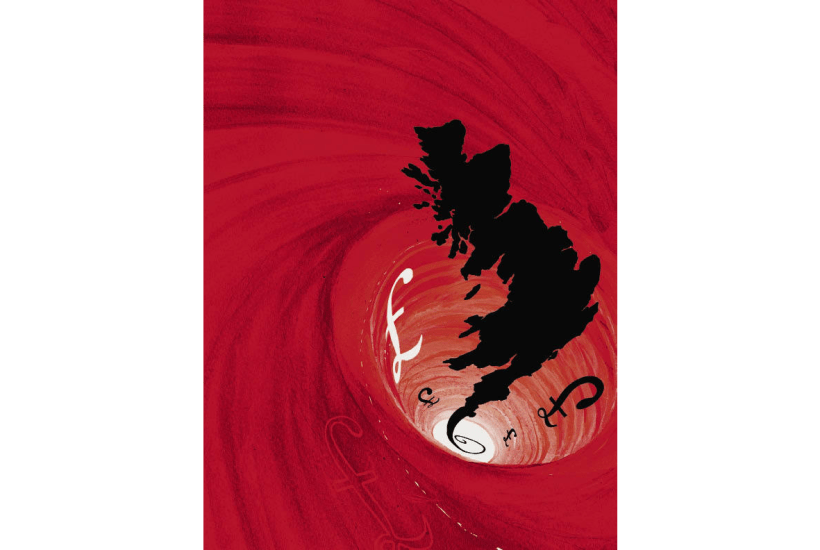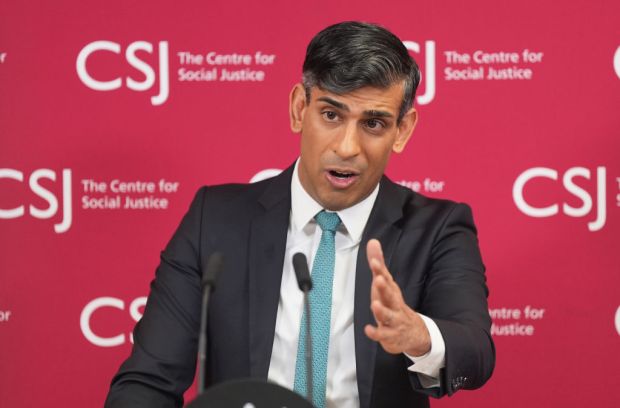On the day the Office for National Statistics announced a sharp rise in consumer price inflation, albeit to a still modest 1.5 per cent, we discovered that house prices have jumped by a staggering 10.2 per cent in the last year. The average house in England now costs £275,000, close to ten times the average annual income. In 1992, the average house cost three times the average income.
A housing boom during a pandemic in the wake of the deepest recession in 300 years doesn’t make a lot of sense, but a few recent events can partially explain it. After three lockdowns, there is pent-up demand, including for houses. The abrupt shift to working from home has led to a permanent change in how some people do their jobs. Office working and commuting have not returned to pre-Covid levels and may never do so.
Many people have realised that they don’t need to live in big cities and have been chasing down new homes (or second homes) in the countryside. Londoners who became millionaires by virtue of buying a house in the 20th century are cashing in their winnings. Others find themselves with money in the bank to lay down a deposit; the British public has amassed excess savings of £100 billion during the pandemic. Adding fuel to the fire is Rishi Sunak’s stamp duty holiday on the first £500,000 of a purchase price.
All of this is a recipe for house price inflation. Estate agents are reporting a buying splurge of the like they have never seen before. People are purchasing houses without even viewing them. It’s a seller’s market and prices are rising accordingly.
It is not as if there was an absence of inflationary pressures in the housing market before Covid-19 kicked off. Interest rates have been close to zero since 2008, slashing the cost of mortgages (but for how much longer?). With no money to be made from putting savings in the bank or in an ISA, housing has been a safe bet for investors. All that money being printed by the Bank of England has to go somewhere and a lot of it has gone into bricks and mortar.
Above all, demand has been exceeding supply for years. The population of the UK has risen by eight million since 2000, a rise of 15 per cent. The nation’s housing stock has not kept pace, a problem made worse by more people living on their own and buying second homes.
The answer, therefore, is to reduce demand or increase supply. Immigration — which is now the main driver of population growth in Britain — may or may not fall in the years ahead, but it is unlikely to go into reverse (i.e. with more people leaving the country than emigrating to it). This leaves increasing supply as the only option. The Conservative party has a good self-interested reason to get building. People who own their own home are significantly more likely to vote Tory. But many home-owning Conservative voters have self-interested reasons of their own to block planning proposals. Lower house prices do not benefit them personally and they have little reason to want their towns and villages to grow, particularly if they suspect that new homes will not be accompanied by new roads and new schools.
And so, while the government makes encouraging noises about building 300,000 new homes a year, it is constantly thwarted at the local level by Nimbys and tree-huggers.
The idea that Britain does not have enough land for new houses is absurd. Even in England, only 9 per cent of land is built on. The government intends to be planting trees on 75,000 acres of it every year by 2024. If there’s one thing this country has plenty of it, it’s fields. We only need to use a fraction of them to build the homes we need, cut the cost of living and end this crazy bull market.
One answer is to create a series of new towns with road and rail links to the nearest big city. This would at least keep the Nimbys happy. Another answer is to review the Green Belt which has doubled in size since 1979 and is far from being the uninterrupted vista of outstanding natural beauty that its admirers like to imagine.
Whatever the government does, it must do it now and do it quickly. House price inflation of 10 per cent a year should ring the alarm bells. Some people are getting rich out of the boom but it is a highly inequitable form of wealth redistribution that will leave the country poorer in the long run.
<//>
Got something to add? Join the discussion and comment below.
Get 10 issues for just $10
Subscribe to The Spectator Australia today for the next 10 magazine issues, plus full online access, for just $10.




















Comments
Don't miss out
Join the conversation with other Spectator Australia readers. Subscribe to leave a comment.
SUBSCRIBEAlready a subscriber? Log in